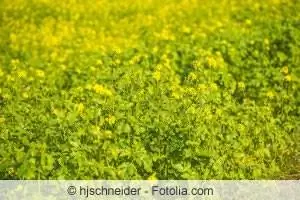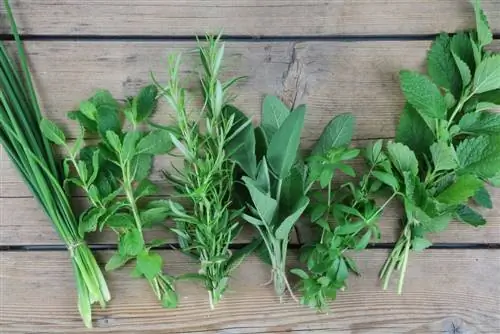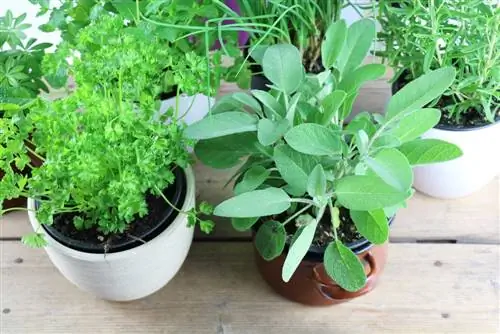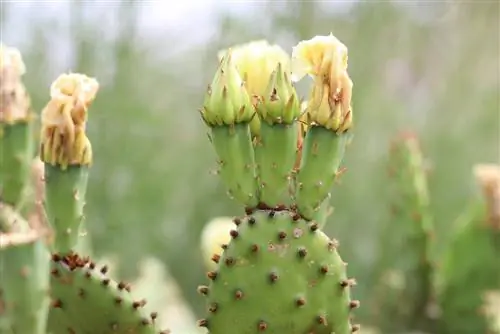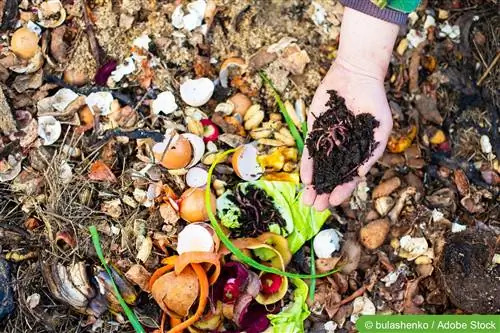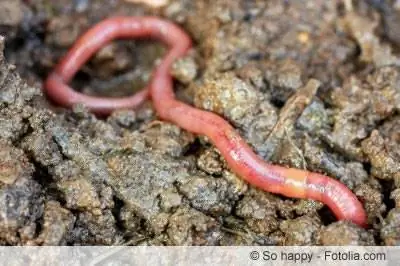- Author admin caroline@plants-knowledge.com.
- Public 2023-12-17 03:39.
- Last modified 2025-01-24 12:45.
One of the best natural fertilizers is and remains compost. Here almost all garden waste and many kitchen waste can be turned into biological fertilizer. Compost contains the necessary nutrients in balanced proportions, loosens heavy soils and ensures higher water storage capacity in sandy soils. In addition, with ripe compost there is no risk of over-fertilization quickly. Of course, not everyone has the space for their own compost in the garden. But there are a number of other ways to produce natural fertilizer yourself.
Plant manure
A natural fertilizer that can be made from nettles and water has also proven successful. In almost every garden, a few - if not whole masses - of the unloved plant grow in a corner somewhere. This organic fertilizer helps a gardener in two ways. On the one hand, he gets rid of the annoying nettle, and on the other hand, he gets a good all-purpose fertilizer for all plants. Nettles are rich in nitrogen and contain important minerals such as phosphorus and iron. To make the manure you need a few simple utensils:
- Gloves
- Plastic bucket or wooden tub
- Scissors or knife, wire mesh or lid (so that animals don't accidentally fall in)
Tip:
Do not use metal containers to prepare the manure! These can react chemically with the manure.
Chop or cut the plant material into rough pieces. You can use all parts of the plant except the flowers. Fill the nettles into the manure container and fill with enough water so that the entire material is covered with water. Use rainwater or at least water that has been stale and exposed to the sun for some time. Since the manure ferments and forms foam, the vessel must not be filled to the brim. Remember that the fermentation process produces a very unpleasant smell. So it's best to place the container in the farthest corner of the garden.
- cover with mesh or rabbit wire
- stir daily
- After two to three weeks, the liquid turns dark and the bubbles stop forming
- now the manure is ready
- sieve out remaining plant parts
The manure must be diluted before use. For older plants, 1 liter of nettle manure is diluted with 10 liters of water. Young plants and sensitive plants require a dilution of 1:20; you can fertilize the lawn with a 1:50 dilution.
Tip:
A manure made from dandelion, onion, garlic or horsetail has a similar effect.
Wood ash
The ash from burned wood from the fireplace or charcoal from the grill is ideal as natural fertilizer. Wood ash is rich in potash and also contains lime and trace elements. It also has an anti-rot and anti-fungal (mold) effect.
- Sprinkle into the seed grooves of carrots and celery
- Roses also love wood ash
- good addition to natural animal fertilizer (rich in potassium, balances the pH value)
stable manure
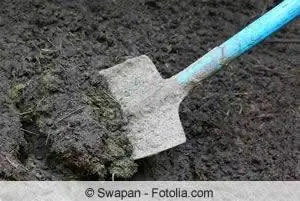
You can get manure for free almost everywhere. Maybe you keep a few animals yourself, have chickens or an aviary.
- strawy cattle manure: all nutrients present in balanced amounts, good for heavy-feeding vegetables
- dried cattle manure: rich in potash, suitable for carrots, celery and roses
- Horse manure: is one of the heat-producing fertilizers, good for cold frames
Caution is advised if you want to use manure from other animal species as fertilizer. The excretions of pigs and birds are very concentrated and pungent, so they are more suitable for composting or at least should be “diluted” with sand or a good portion of soil:
- Pig manure
- Poultry manure (guano): high phosphorus (up to 12%) and nitrogen content
Green manure
The principle of green manure is different than other fertilization methods with natural fertilizer. This is about optimizing existing beds with the help of fast-growing plants. In this case, optimizing means:
- Deeply loosen the soil
- Enrichment with nutrients and humus
- Control of diseases and pests
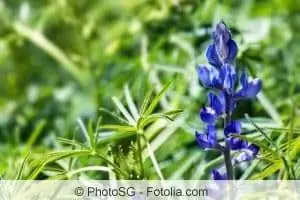
All in all that means:
Improve the quality of the soil. The seeds of suitable plants are sown in spring or autumn and these are mowed down before the seeds ripen. They are then simply worked into the soil. Plants that ensure good green manure:
- Lupine
- Crimson clover or other types of clover
- Winter vetch
Tip:
These plants bind nitrogen from the air, which is then available in the soil.
Coffee grounds
Some of the compostable household waste can also be used directly as fertilizer without composting. Coffee grounds are found in many households. Instead of going into the organic waste bin, the powder used can also help the plants to grow well. Coffee grounds are an excellent source of nitrogen and potassium. The phosphorus it contains also promotes the metabolism of plants. When spread around the garden, the natural fertilizer even attracts earthworms, which loosen the soil and supply the soil with important nutrients. Anyone who spreads coffee grounds should definitely make sure to work them well into the soil. If only applied superficially, it tends to form mold and quickly becomes so dry that irrigation water or rain can no longer penetrate the soil. Alternatively, the coffee grounds can also be added to the water for irrigation. Since it reacts slightly acidic, it lowers the pH value of the soil to a small extent. This is particularly ideal for plants that do not like calcareous soil.
Tea
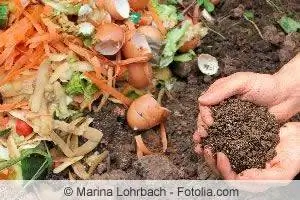
Loose black tea or brewed tea bags are a good addition to the irrigation water. Potted and balcony plants in particular benefit from this. Simply let the tea work in the water for a few minutes and use it to water the plants.
Horn shavings
Horn shavings and bone meal are animal fertilizers made from slaughterhouse waste. The fertilizer mainly contains nitrogen and phosphorus. The coarser the material, the slower it is converted (long-term fertilizer). Your own cut fingernails or toenails also contain the same ingredients as horn shavings. However, the amount is usually not sufficient for large-scale fertilization.
Potato water
When cooking vegetables or potatoes, many valuable substances are boiled out, which can be poured into the flower bed after they have cooled down. Please do not water the flowers if you have used s alt for cooking. The plants can't tolerate that.
Incorporate kitchen scraps into the flowerbeds?
Definitely not! Large quantities of biodegradable waste may only be disposed of in compost. During the decomposition process, high temperatures arise (over 60 degrees), which only very few plants can tolerate!
Conclusion
Organic natural fertilizers can also be produced inexpensively and without much effort using simple means. Compost is still the most important natural fertilizer, but not everyone has the time and space for their own composting. Plant manure, farmyard manure and some other home remedies also have high nutrient contents. Even uns alted potato water can be used as an ecologically sound fertilizer.

